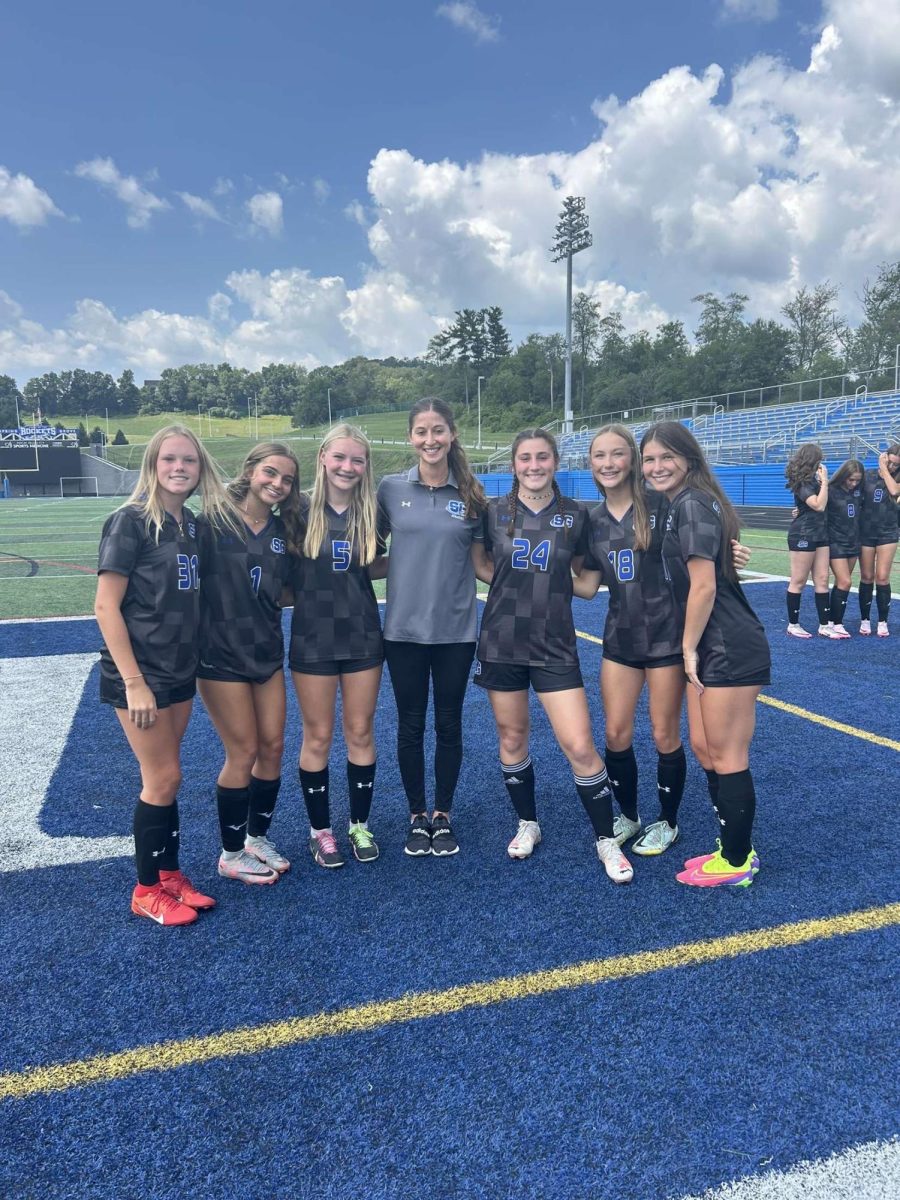A champion is not something that is born, but something that is made. Champions can be made out of any athlete, just ask elite level coach, Micheal Brooks. He helped build Olympic level swimmers such as Meghan Small, Coleman Stewart, and Spring Grove alumnus, Hali Flickinger. Despite being a self-proclaimed mediocre athlete himself, he became one of the best coaches. Brooks grew up swimming at a local club team, and would go on to swim at a D3 college. He began his coaching career at a small summer league as a way to make money while he was a student. He then went on to coach the York YMCA for around ten years, assistant coach at the University of North Carolina, and even going as far as Canada to coach elite athletes. Who would’ve thought that such an accomplished coach’s career started out as a summer job!
It starts with the mindset
Brooks has coached some of the highest level athletes, so when asked what made them stand out he replied, “I think a lot of the difference is in the mind and an ability to be extremely consistent, because it’s easy to be excited about your sport when everything is going well, but there are going to be times when it’s horrible, and the ability to persevere in those downtimes is really important.” Additionally, Brooks included the differences not only in the pool: “The athletes I’d had that were really good had an amazing drive about them, and that was transferrable to everything they chose to do.” The key to achieving excellence is to practice it in all aspects of your life.
Mental shifts
If you are an athlete or a coach, it is important to know how to achieve the mindset of a champion. Brooks stated, “The most important thing is seeing how important the work you put in is. Most kids view practice differently than an actual competition, but the really good kids see the importance of practice, and are setting goals for themselves everyday.” Once athletes start to see the work they have put in, they will build confidence that will support them on the day of a competition. All athletes and coaches know that doubt and fear are the two biggest road blocks in performing to the highest level. Brooks declared, “The key to overcoming doubt is to succeed in practice. It’s a lot easier to trust your body when you know you’ve done the work.” Brooks has been to the Olympic trials and he recalls “Everyone is scared stiff, especially the favorites. And it is really hard to bring out your best in that environment, so they just need to realize it’s a totally normal thing that everyone is feeling.” Even the highest level athletes get butterflies in their stomachs, but the athletes that don’t let it get the best of them perform to their highest potential.
Coaching
Behind every great athlete, is a great coach. Brooks claims his coaching success did not come from the workouts he wrote or discipline he displayed; it came from his communication to motivate swimmers to do more or better than they thought they could do. Brooks contends that when he challenges his swimmers to go faster, “They don’t suddenly become more able, but because mentally a door has been opened for them, and they walk through it.” The key to high level coaching is pushing athletes to do more than they believe they are capable of, because more times than not, they surprise themselves.
Every Athlete Matters
For Brook’s first five to six years at York YMCA, he was the only real coach on the team — aside from a few volunteer coaches. He said, “No matter how unreasonable it may have been, I wanted our team to win. When you have a fairly small team, every kid matters.” Brooks took the time into developing every single swimmer on the team, so they were able to win against large teams.
End Goals
An athlete does not only gain value once they start scoring points. Sometimes the most important athletes on a team score no points at all. Brooks recalled a time at YMCA nationals when he gave the MVP award to a swimmer who didn’t put any points on the board. He also mentioned, “Despite what some sports physiologists may say, talent does exist, but you do the best you can with what you’ve got, so at the end of the day you can honestly say I did my best effort. If you do that, you should be satisfied.” Success looks different from person to person, so whether you’re winning a national title, or just competing at your local event, you should be proud of your hard work.

